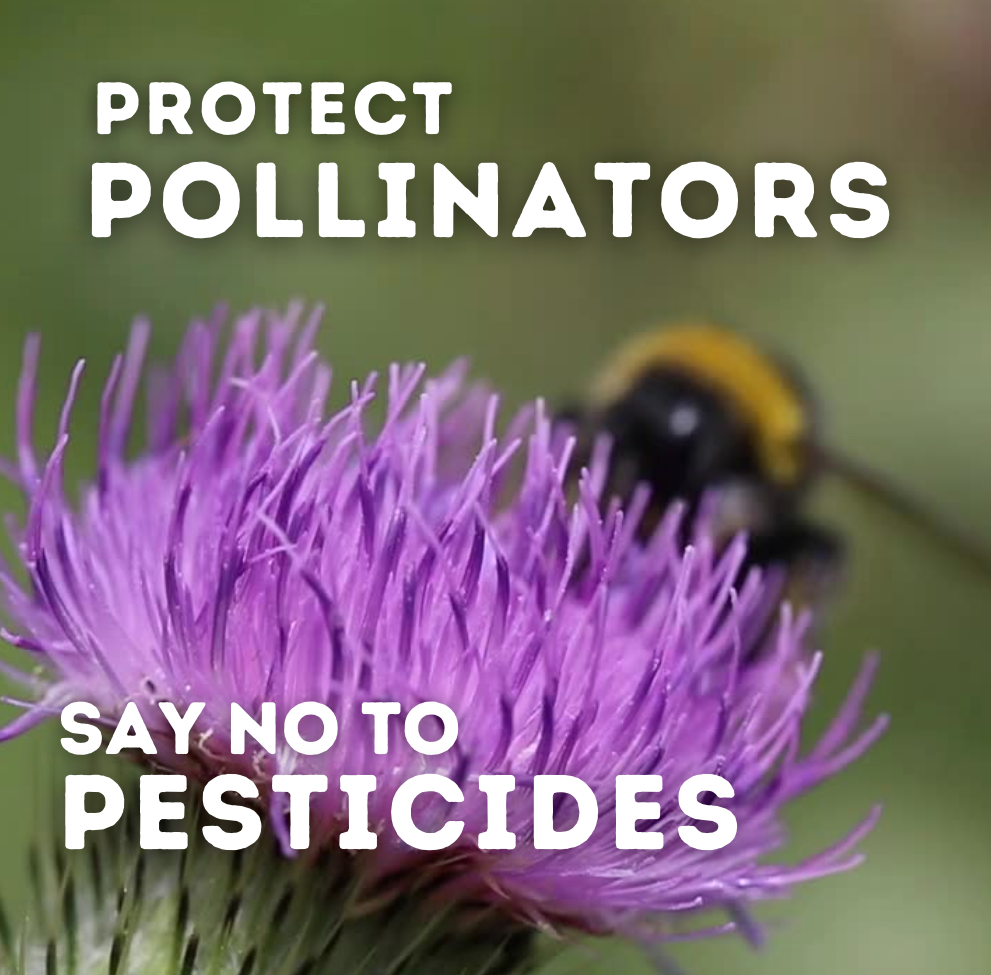NEWS
The Problem with Pesticides

Want to support our pollinator population? Say NO to pesticides.
Hundreds of scientific studies have linked neonicotinoids (“neonics” for short), a popular and highly toxic class of synthetic insecticides, to massive bee, pollinator, and bird population losses around the globe. In CT alone, beekeepers reported losing 65.7% of their colonies this year.
The problem is neonics are extremely toxic and kill indiscriminately, exterminating both the “pest” insects and butterflies, bees, and other wildlife. How toxic are they? Eating just one neonic-treated seed is enough to kill some songbirds, and even at low doses, neonics can harm birds’ immune systems, fertility, navigation, cause rapid weight loss, and reduce birds’ chances of surviving in the wild.
Humans (and pets) are not immune to the harmful effects of neonics either; research links neonicotinoids to potential neurological, developmental and reproductive harms, including malformations of the developing heart and brain.
The widespread use of neonics also impacts the quality of our groundwater, seeping through the soil and contaminating our waterways, poisoning additional plants and wildlife along the way.
While Connecticut has taken substantial steps to regulate pesticides, they have not completely banned neonics. The Pollinator Protection Act, which was passed in 2016, classified neonicotinoids as “restricted use,” which limited the use of neonics to certified pesticide applicators. The problem is, while the average citizen cannot purchase neonics, they are still being used in dangerous quantities through certified pest control and lawn management companies.
Connecticut legislators are considering a new bill (No. 963) that would expand the Pollinator Protection Act to ban all nonagricultural use of neonics. New Jersey and Maine have already taken similar steps to restrict neonics. New York is currently working to pass similar legislation.
Protect our pollinators, wildlife, pets, and public health by committing to being pesticide free this year. Want to take your support a step further? Contact your Connecticut general assembly member and let them know you support Bill No. 963!